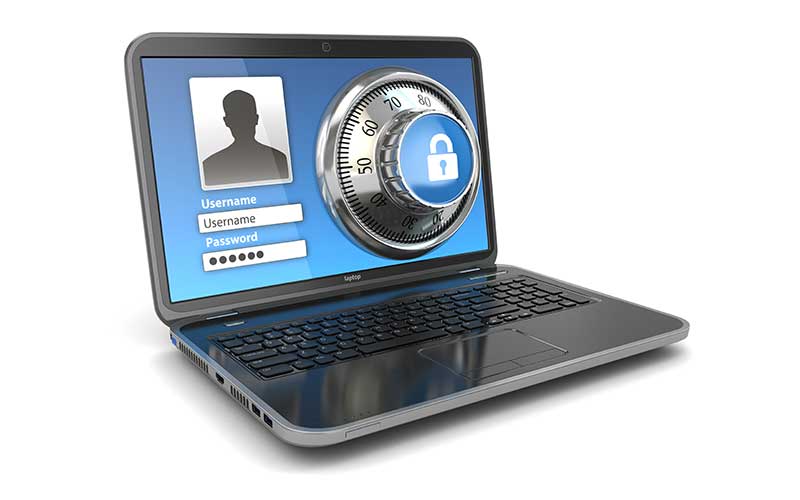The importance of strong passwords and password management.
In today’s digital world, passwords have become the first line of defense against cyber threats. They protect our personal information, financial data, and online accounts. As cybercriminals become more sophisticated,…
In today’s digital world, passwords have become the first line of defense against cyber threats. They protect our personal information, financial data, and online accounts. As cybercriminals become more sophisticated, it’s crucial to understand the importance of strong passwords and effective password management. In this article, we’ll explore why strong passwords matter, the characteristics of strong passwords, and strategies for managing them effectively.
Why Strong Passwords Matter
Strong passwords play a vital role in safeguarding your online identity and preventing unauthorized access to your accounts. Weak passwords are easier for hackers to crack, which can lead to identity theft, financial loss, and other serious consequences. By creating strong, unique passwords for each of your accounts, you reduce the risk of becoming a victim of cyberattacks.
Characteristics of Strong Passwords
A strong password has the following characteristics:
- Length: Aim for at least 12 characters to increase the complexity of your password.
- Complexity: Use a mix of uppercase and lowercase letters, numbers, and special characters.
- Unpredictability: Avoid using easily guessable information, such as names, birthdays, or common phrases.
- Uniqueness: Create a different password for each of your accounts to prevent a single breach from compromising multiple accounts.
Password Management Strategies
Password Managers
Password managers are tools that securely store and generate passwords for you. They help you maintain unique, strong passwords for each account while only requiring you to remember a single master password. Many password managers also offer additional security features, such as password audits and automatic password updates.
Two-Factor Authentication
Two-factor authentication (2FA) adds an extra layer of security by requiring a second form of verification in addition to your password. This may include a text message, an authentication app, or a physical security key. Enabling 2FA on your accounts makes it more difficult for hackers to gain access, even if they have your password.
Regular Password Updates
Regularly updating your passwords can help protect your accounts from being compromised. Change your passwords every three to six months, or immediately if you suspect a breach. Avoid reusing old passwords or using the same password across multiple accounts.
Tips for Creating Strong Passwords
- Use a passphrase: Combine multiple unrelated words to create a longer, more complex password.
- Leverage acronyms: Create an acronym from a memorable phrase or quote to form a unique password.
- Substitute characters: Replace letters with numbers or special characters to increase complexity (e.g., “P@ssw0rd”).
- Avoid common patterns: Steer clear of predictable sequences, such as “12345” or “qwerty.”
Conclusion
Strong passwords and effective password management are crucial for protecting your online accounts and personal information. By understanding the characteristics of strong passwords and implementing strategies like using password managers, enabling two-factor authentication, and updating your passwords regularly, you can significantly reduce the risk of cyberattacks. Remember, your online security is only as strong as your weakest password.
FAQs
- What is a password manager, and how does it work? A password manager is a tool that securely stores and generates passwords for your online accounts. It encrypts your passwords and requires a master password to access them. By using a password manager, you can maintain unique, strong passwords for each account without having to remember them all.
- How often should I change my passwords? It’s generally recommended to change your passwords every three to six months. However, you should change them immediately if you suspect a breach or if a service you use has reported a security incident.
- Is it safe to use a password manager? While no system is entirely foolproof, reputable password managers use strong encryption and security measures to protect your data. As long as you use a trustworthy password manager and maintain a strong, unique master password, it’s considered a safe and effective solution for password management.
- What if I forget my master password for my password manager? Most password managers do not have a way to recover your master password, as this would compromise the security of your stored passwords. It’s crucial to choose a memorable yet strong master password and consider using a secondary method, like writing it down and storing it in a secure location, to ensure you don’t forget it.
- Can I use the same password for multiple accounts if it’s a strong password? It’s not recommended to use the same password for multiple accounts, even if it’s a strong one. If a hacker cracks the password for one account, they can potentially gain access to all your other accounts using the same password. Always create unique passwords for each account to minimize the risk of a security breach.

